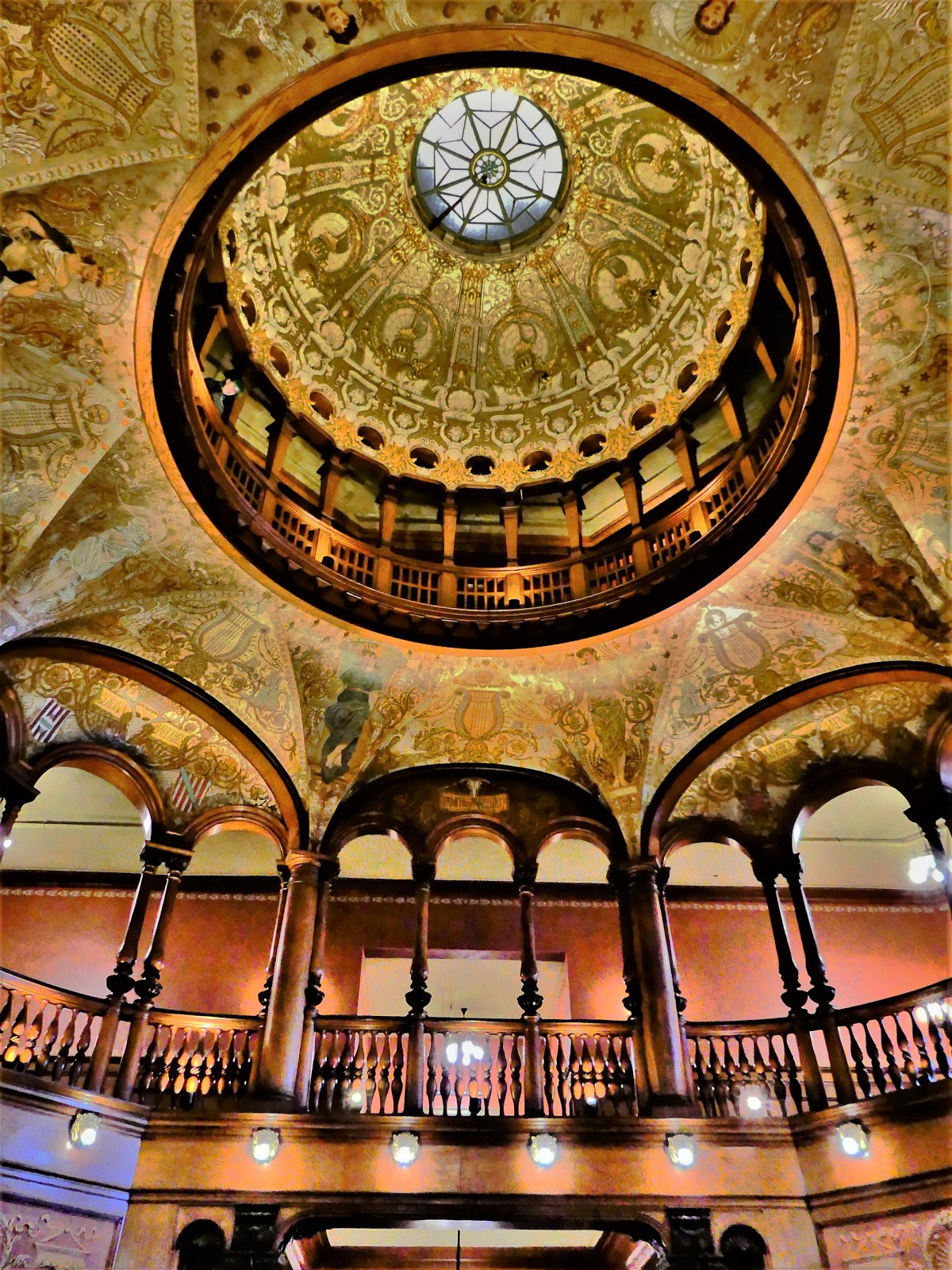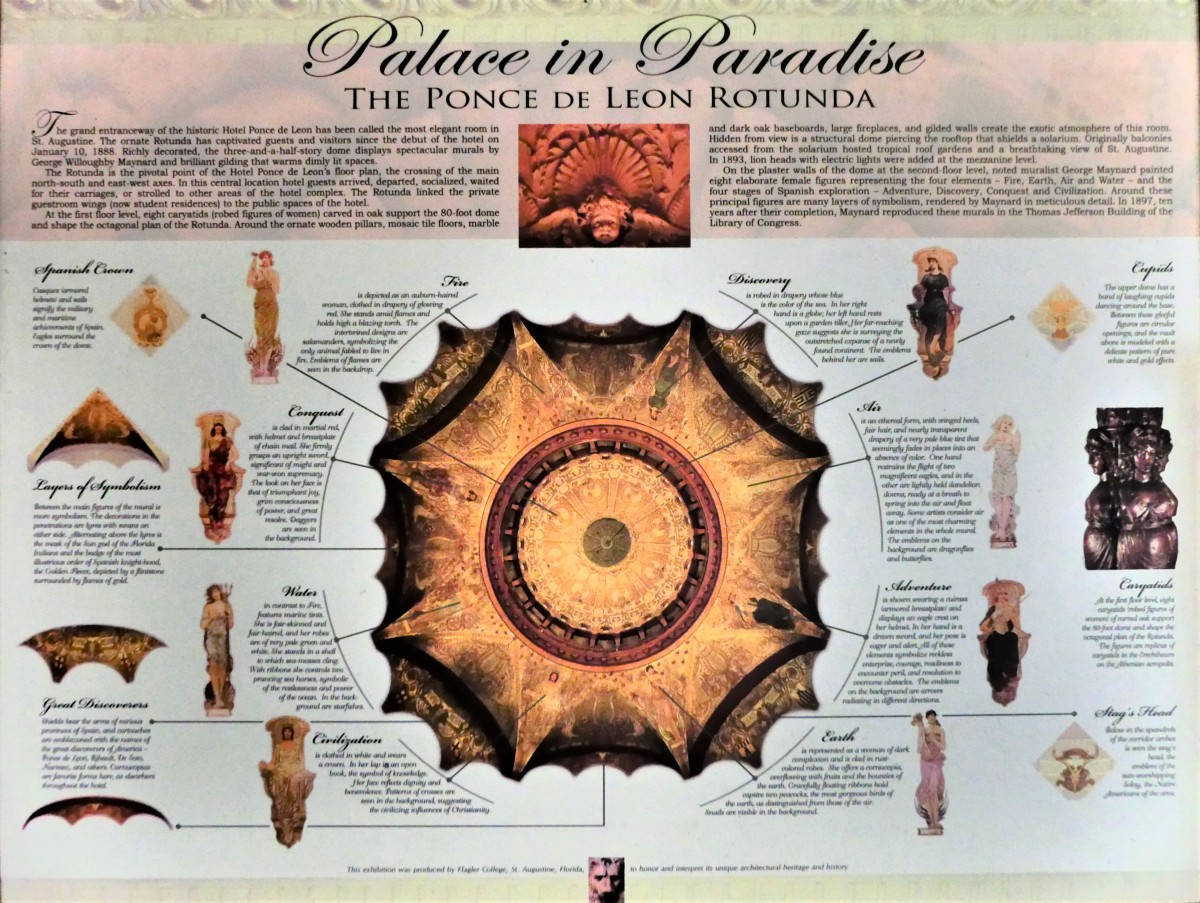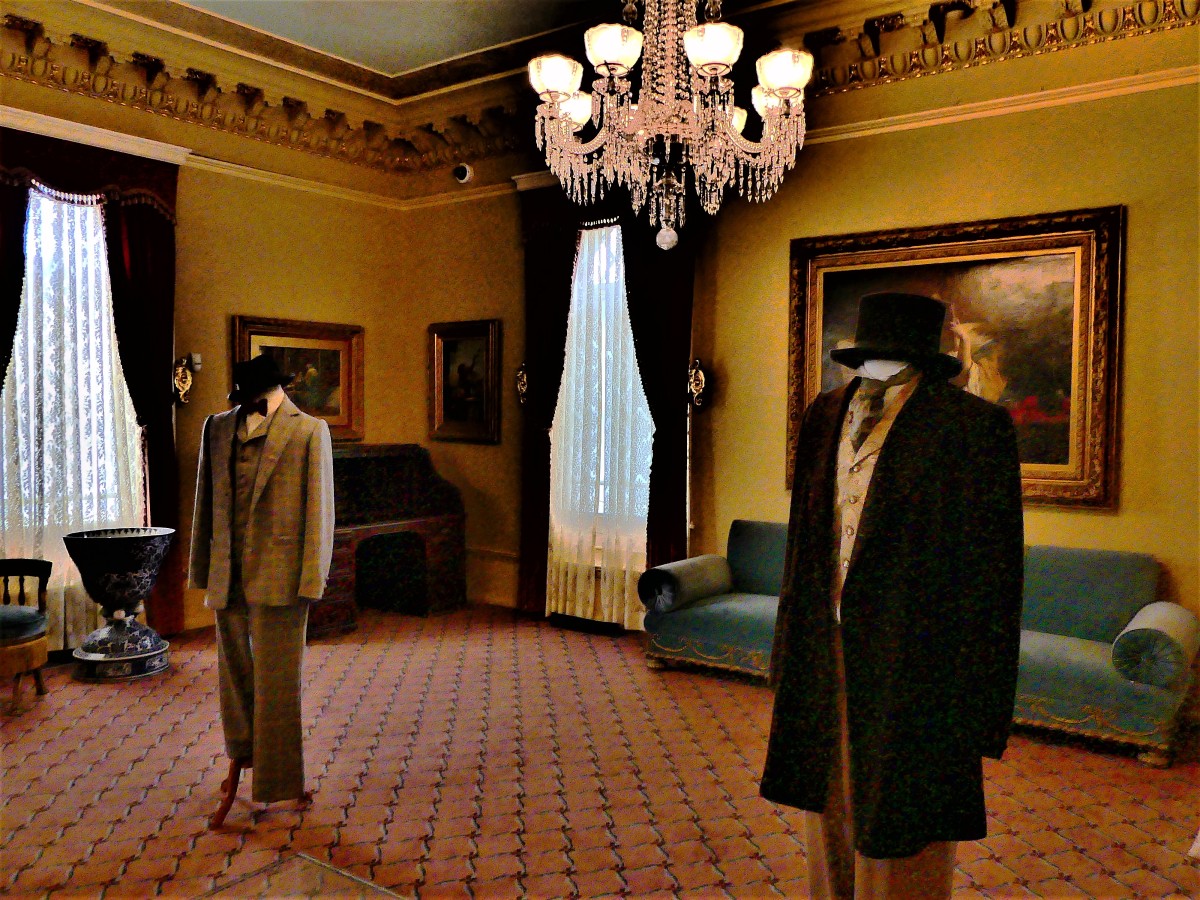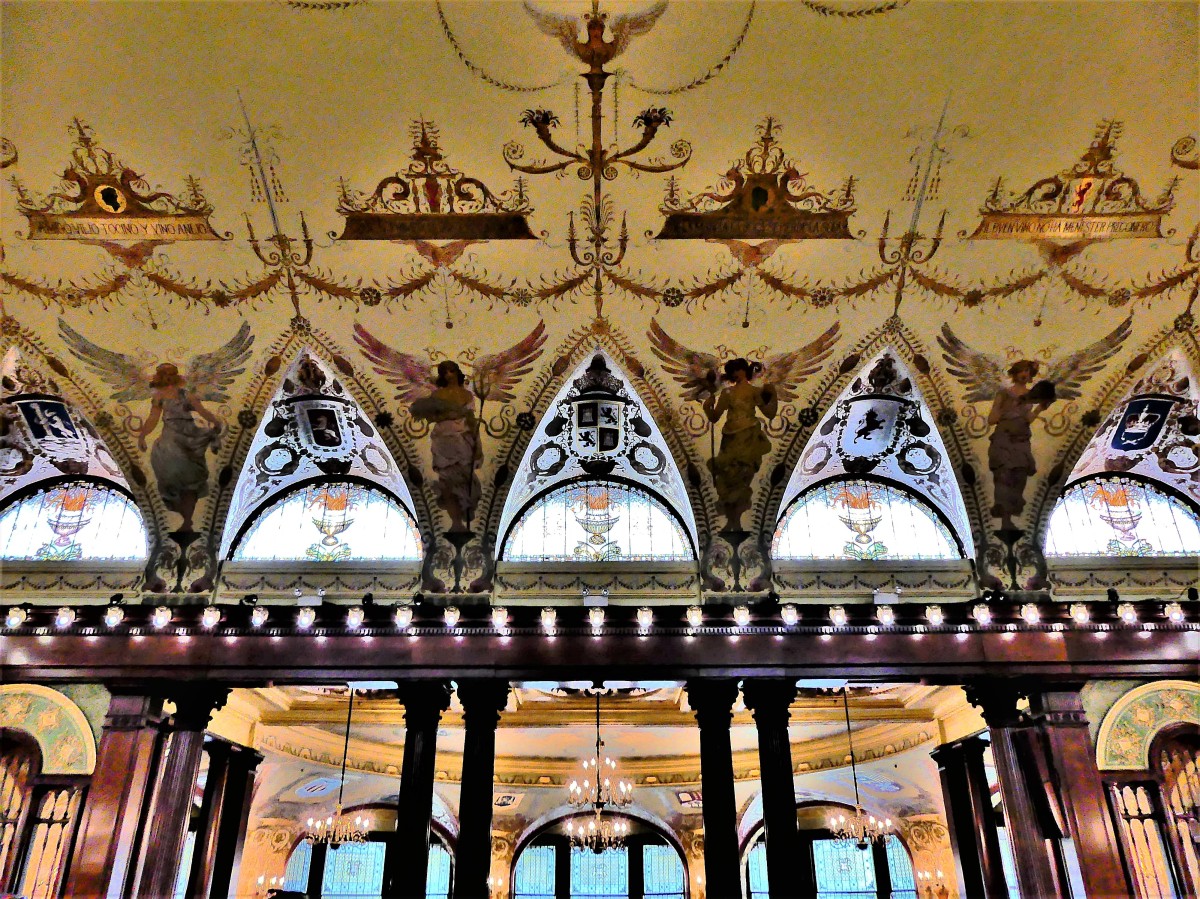In 1888, Henry Flagler of Standard Oil fame opened the Hotel Ponce de Leon (a.k.a the Ponce) in downtown St. Augustine to the delight of many fortunate Northerners, who eagerly took up tropical residency in one of 450 rooms during the winter season.

The elaborate Spanish Renaissance design was designed by the renown firm of Carrère and Hastings, with terra-cotta flourishes provided by Emmanuel Louis Masqueray.

Construction consisted of poured concrete over a coquina base–a new-fangled technique that laid the groundwork for future prominent buildings throughout the country.

Louis Comfort Tiffany and Company was responsible for the interior design, using the ballroom ceiling as an inspired palette for his signature “Tiffany blue”,

and an anchor for a complement of Austrian crystal chandeliers.

For three and one-half months and the princely sum of $4,000 ($100K by today’s count), Flagler’s pampered guests enjoyed uncommon luxury for their time, which included private bathrooms, building-wide electricity supplied by Edison’s on-site DC dynamos (another first for a hotel), gourmet meals, and nightly entertainment.
Upon entry through the Beaux-Arts gateway,

guests would cross the courtyard gardens past the playful sundial fountain

adorned by twelve spitting terra-cotta frogs.

Guests would continue through the hotel doors…

to gaze at the legendary rotunda:
The grand entranceway of the historic Ponce de Leon has been called the most elegant room in St. Augustine. The ornate Rotunda has captivated guests and visitors since the debut of the hotel on January 10, 1888. Richly decorated, the three-and-half story dome displays spectacular murals by George Willoughby Maynard and brilliant gilding that warms dimly lit spaces.
The Rotunda is the pivotal point of the Hotel Ponce de Leon’s floor plan, the crossing of the main north-south and east-west axes. In this central location hotel guests arrived, departed, socialized, waited for their carriages, or strolled to other areas of the hotel complex. The Rotunda linked the private guest room wings…to the public spaces of the hotel.

At the first floor level, eight caryatids (robed figures of women) carved in oak support the 80-foot dome and shape the octagonal plan of the Rotunda. Around the ornate wooden pillars, mosaic tile floors, marble and dark oak baseboards, large fireplaces, and gilded walls create the exotic atmosphere of this room. Hidden from view is a structural dome piercing the rooftop that shields a solarium. Originally balconies accessed from the solarium hosted tropical roof gardens and a breathtaking view of St. Augustine. In 1893, lion heads with electric lights were added at the mezzanine level.

On the plaster walls of the dome at the second floor level, noted muralist George Maynard painted eight elaborate female figures representing the four elements – Fire, Earth, Air and Water – and the four stages of Spanish exploration – Adventure, Discovery, Conquest and Civilization. Around these principal figures are many layers of symbolism, rendered by Maynard in meticulous detail. In 1897, ten years after their completion, Maynard reproduced these murals in the Thomas Jefferson Building of the Library of Congress.

Presently, the ballroom at the west end serves as an orientation facility for guided historic tours and a ceremonial setting for faculty,

but also houses a selection of relics from a bygone era in an adjoining parlor,

with an emphasis on fine art,

and family life.

At the north wing of the hotel, the cavernous dining hall commands attention for its opulence and splendor.

Ten barreled bay windows are panelled in Tiffany stained-glass,

and believed to be part of the world’s largest private collection–making it worthy of safeguarding by forming a sandwich of bullet-proof glass on the outside,

and unbreakable acrylic on the inside.
[Diners sat beneath a quad of]…graceful angels that represent the four seasons, and a majestic Spanish galleon under full sail–an artistic rendition of the ship that brought Ponce de Leon to Florida in search of the Fountain of Youth.

[Again], the majestic ceilings were the work of George Willoughby Maynard, the nation’s foremost muralist of the time. Full-length female figures were the focal point of this room. The ceilings hold Spanish crests and coats of arms intermingled with colorful proverbs.

The hotel was commandeered by the federal government during World War II, and used as a Coast Guard training facility. When the building was decommissioned by the Coast Guard after the war, hotel operations resumed, but sales and travelers were never as robust as before.
The Ponce made history again on March 31, 1964, when the dining room was chosen by black students from Richard J. Murry Middle School as the site for a mass sit-in, which ended in police violence and arrests, ultimately resulting in Senate passage of the landmark Civil Rights Act of 1964.
The Ponce closed its doors in 1967, only to reopen the following year as the centerpiece of the newly endowed Flagler College, where the newly restored Ponce continued its service to historic St. Augustine as a residence hall and campus cafeteria for freshman girls.

Presently, tuition, room and board totals $30,000, which in the scheme of things, seems like an unlikely bargain at today’s prices for yesterday’s glamor.
(The building was added to the U.S. National Register of Historic Places in 1975, and was awarded National Historic Landmark status on February 21, 2006.)

































